Introduction
Social media has infiltrated nearly every aspect of our lives, and it’s no surprise that it has a significant impact on the global economy. From small businesses reaching new customers to large corporations shaping their brand image, social media platforms have created a dynamic and interconnected marketplace. Let’s delve into the top 15 compelling facts that showcase the economic power of social media.
Top 15 Facts (One Line)
- Social media facilitates explosive growth for e-commerce.
- Social campaigns boost brand awareness and drive sales.
- Accessible and cost-effective advertising for businesses of all sizes.
- Social media empowers small businesses to compete with big players.
- Rise of influencer marketing creates new economic opportunities.
- Improved customer service and engagement through social platforms.
- Social media transforms job markets and recruitment strategies.
- Data-driven insights shape marketing and business decisions.
- Social media cultivates global business communities and networks.
- New industries emerge, centered around social media.
- Social media accelerates innovation and disrupts traditional markets.
- Essential for businesses to maintain an active social presence.
- Social commerce offers seamless in-app purchase experiences.
- Social media reshapes consumer behavior and expectations.
- Challenges and potential downsides must also be considered.
1. Social media facilitates explosive growth for e-commerce.
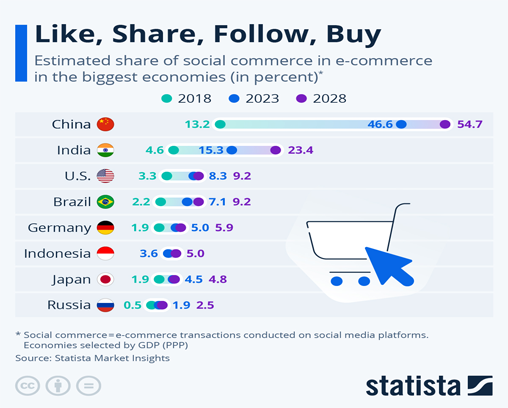
- Positive: E-commerce businesses can reach global markets, tap into niche audiences, and reduce overhead costs compared to brick-and-mortar stores. Social platforms offer frictionless shopping experiences for consumers.
- Negative: Increased competition can be challenging for smaller e-commerce players. Concerns exist around consumer privacy and the security of online transactions.
- Future: Social commerce will keep evolving with features like augmented reality try-ons for more immersive experiences, and the continued integration of payment solutions making in-app purchases even more convenient.
2. Social campaigns boost brand awareness and drive sales.
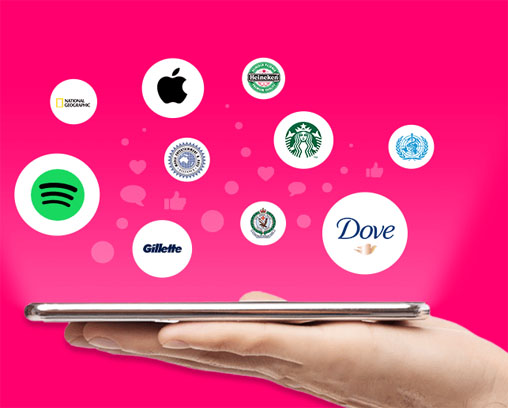
- Positive: Social campaigns can go viral, cost-effectively increasing brand visibility, and drive traffic to websites and storefronts. Social listening tools help companies understand consumer sentiment and tailor their messages.
- Negative: The sheer volume of content can make it difficult for brands to stand out. Ineffective campaigns or negative backlash can harm brand reputation.
- Future: AI-powered personalization will play a key role in delivering highly targeted ads and content for increased campaign effectiveness.
Read More: 15 Mind-Blowing Facts About the Global Economy | Unveiled
3. Accessible and cost-effective advertising for businesses of all sizes.
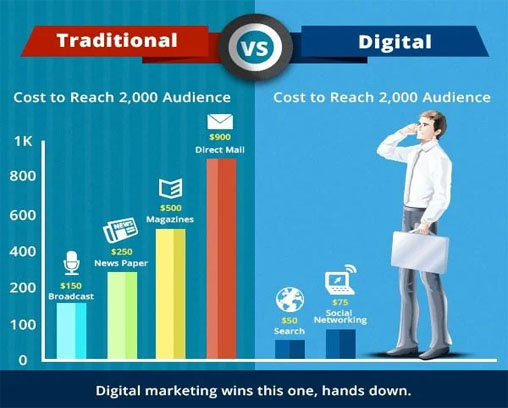
- Positive: Pay-per-click systems and micro-targeting let even small businesses compete on an equal footing. Real-time analytics offer insights into campaign performance for optimization.
- Negative: Advertising can become intrusive and disrupt user experiences. Managing multiple ad platforms requires expertise.
- Future: Interactive and immersive ad formats will blend seamlessly into social media feeds, potentially enhancing the user experience.
4. Social media empowers small businesses to compete with big players.
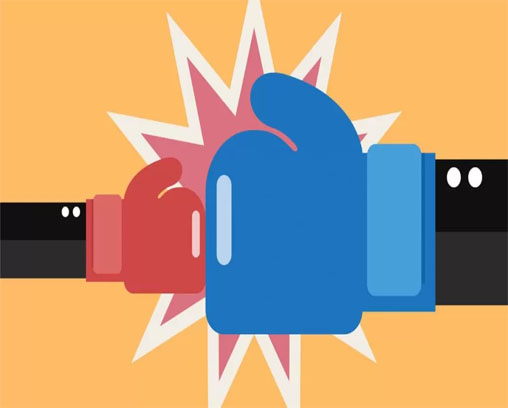
- Positive: Cost-effective marketing, direct customer engagement, and the ability to build a strong brand presence level the playing field.
- Negative: Large corporations still have greater resources for paid campaigns and teams dedicated to social media management.
- Future: Smaller businesses with a niche focus and authentic brand voice will have a competitive edge in establishing loyal customer bases.
5. Rise of influencer marketing creates new economic opportunities.

- Positive: Content creators can monetize their passions, and businesses tap into niche audiences. Influencer marketing can be more authentic than traditional advertising.
- Negative: Lack of transparency and undisclosed partnerships can erode consumer trust. Concerns exist around influencer culture promoting excessive consumerism.
- Future: Regulations are likely to develop for greater transparency in influencer marketing. Micro and nano-influencers may become even more valued for their highly engaged audiences.
6. Improved customer service and engagement through social platforms.

- Positive: Social media allows businesses to respond quickly to inquiries, address complaints, and build relationships with customers. Real-time feedback helps companies improve products and services.
- Negative: Handling negative comments and the always-on nature of social media can be taxing for customer service teams. There’s a risk of harmful online negativity escalating.
- Future: Chatbots and AI-powered tools will automate a portion of customer service, freeing up resources for complex issues and enhancing response times.
Read More: The Top 15 Inventions That Changed the World | Discover Their Impact
7. Social media transforms job markets and recruitment strategies.
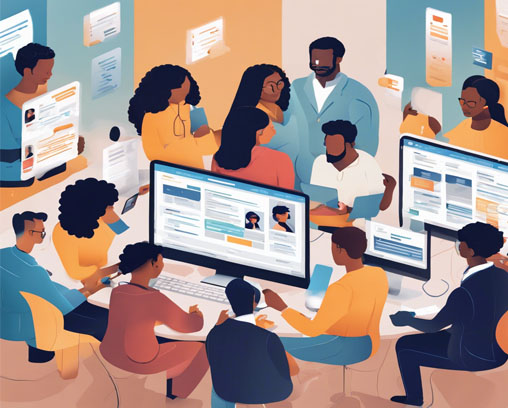
- Positive: Platforms like LinkedIn help professionals network, find job openings, and showcase their skills. Companies can target potential candidates more efficiently.
- Negative: Bias in hiring algorithms is a concern. An overemphasis on social media presence may disadvantage certain job seekers.
- Future: Social media will become even more integrated into job searches. Candidates showcasing skills through engaging content could have an edge.
8. Data-driven insights shape marketing and business decisions.
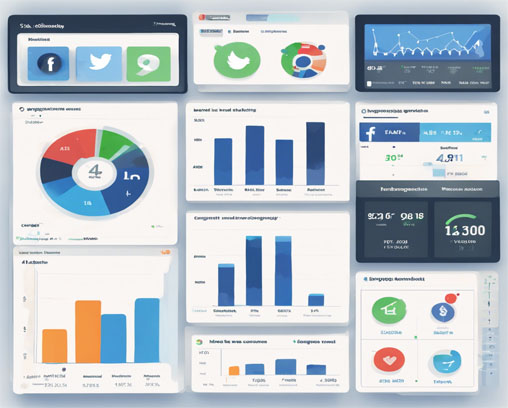
- Positive: Social media analytics provide rich demographics, interests, and behavior patterns, leading to better targeting and strategy. Companies can track sentiment and adjust products and services accordingly.
- Negative: Privacy concerns over data collection and use by businesses. There’s a risk of misinterpreting data or falling into vanity metrics.
- Future: Privacy regulations will impact data collection, and companies will need to find a balance between personalization and respect for user data. Ethical use of data will be paramount.
9. Social media cultivates global business communities and networks.
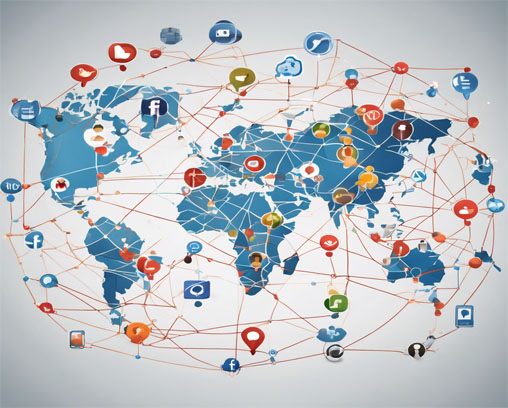
- Positive: Professionals worldwide can connect, collaborate, and exchange ideas. Businesses can source suppliers and partners across borders easily.
- Negative: The potential for cultural misunderstandings and communication challenges in a globalized environment exists. There’s a risk of information overload.
- Future: Language translation tools will play a bigger role in facilitating seamless communication in global social media communities. AI-powered matchmaking tools might emerge to connect businesses even more effectively.
10. New industries emerge, centered around social media.
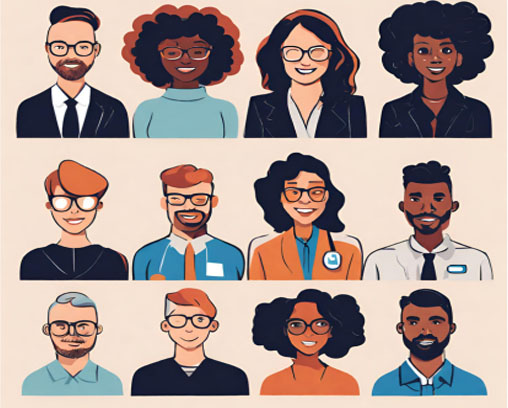
- Positive: Creation of entirely new job roles such as social media managers, content creators, influencer marketing specialists, and data analysts.
- Negative: These new industries can be volatile with trends and platform algorithms changing frequently.
- Future: Continued specialization within social media-related careers. There’s potential for new sectors to become dependent on shifting social media landscapes.
11. Social media accelerates innovation and disrupts traditional markets.
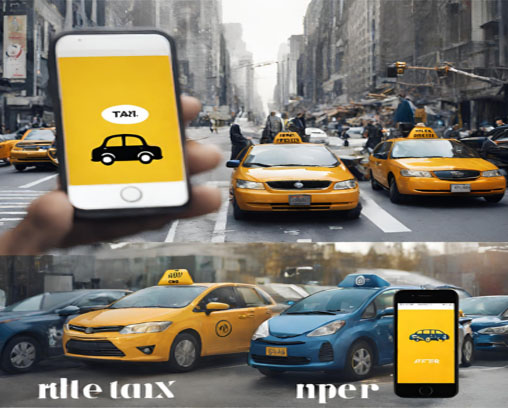
- Positive: Rapid feedback loops and the democratization of information stimulate innovation. Niche communities push the boundaries of creativity. Disruption can challenge entrenched industries, benefiting consumers.
- Negative: Rapid changes can be overwhelming and lead to businesses being left behind. Concerns over monopolies can arise as dominant social platforms gain significant market power.
- Future: Expect innovation to continue at a rapid pace, forcing businesses to stay agile. Regulations may emerge to balance disruptive potential and ensure fair market practices.
12. Essential for businesses to maintain an active social presence.

- Positive: A strong social presence builds credibility, allows for direct interaction with customers, and helps manage brand reputation. It’s expected by modern consumers.
- Negative: Maintaining a consistent presence is resource-intensive and requires skilled management. Not every platform is suitable for every business.
- Future: Businesses failing to adapt to social media risk becoming irrelevant, particularly for younger generations.
13. Social commerce offers seamless in-app purchase experiences.

- Positive: Reduces friction and increases impulse purchases. Creates new revenue streams for businesses on social platforms.
- Negative: May further fuel overconsumption trends. Raises concerns around secure payment processing and data protection.
- Future: Social commerce will become even more integrated, making purchases virtually instantaneous at the point of content discovery.
14. Social media reshapes consumer behavior and expectations.
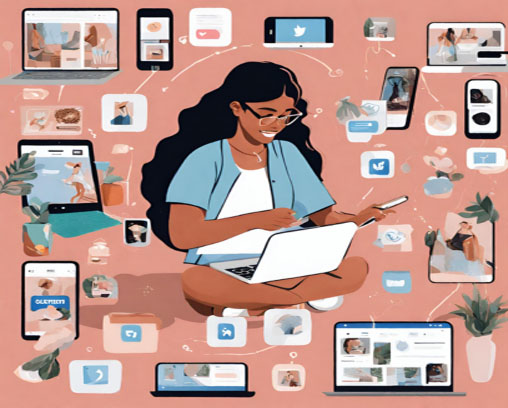
- Positive: Empowerment of consumers who can compare products, voice opinions, and shape brands through feedback. Drives businesses towards transparency and better practices.
- Negative: Can lead to unrealistic expectations driven by curated content. Promotes instant gratification and may encourage impulsive buying cycles.
- Future: Consumer activism and socially-conscious purchasing via social media will likely rise. Businesses will need to prioritize ethical practices and community impact.
15. Challenges and potential downsides must also be considered.

- Positive: Critical awareness protects users and highlights areas for improvement in social media platforms.
- Negative: Spread of misinformation, cyberbullying, mental health concerns, political polarization, and echo chambers are serious issues
- Future: Balancing freedom of expression, combating online harms, and fostering healthy online communities will be ongoing challenges.
15 FAQs about Economic Impact of Social Media
-
How does social media specifically help small businesses succeed?
Small businesses thrive on social media due to:
Cost-effective reach: Organic posts and affordable ad targeting bring exposure without the expense of traditional media.
Brand building: Businesses can showcase their personality, values, and products/services, building a loyal following.
Direct customer interaction: Prompt responses to questions and feedback fosters community, boosting customer satisfaction.
Level playing field: Smaller businesses can compete for attention by offering great content and customer service, not just big budgets. -
What is influencer marketing, and how does it work?
Influencer marketing involves partnering with individuals who have a large, engaged following on social media. Businesses pay influencers to promote products or services to their audience. This works because:
Trust: Followers trust the influencer’s recommendations, more so than traditional advertising.
Authenticity: Influencer posts often feel less “salesy” and more organic.
Niche targeting: Brands can find influencers with an audience perfectly aligned with their target market. -
Can social media advertising truly replace traditional advertising?
For many businesses, social media advertising won’t fully replace traditional forms, but it offers unique advantages:
Targeting: Ads can be targeted by demographics, interests, and behaviors for more efficient spending.
Measurability: Real-time analytics reveal ad performance, allowing for optimization on the fly.
Interactivity: Users can like, comment on, and share ads, potentially increasing reach and engagement.
Affordability: Social ads can reach sizable audiences even with modest budgets. -
What are some negative economic impacts of social media?
While positives abound, it’s important to acknowledge the downsides:
Increased competition: Businesses face a crowded marketplace where standing out takes effort.
Consumer privacy concerns: Data collection fuels ads, but can feel like a violation for some users.
Disruption: Established industries can be upended by social-media-savvy newcomers.
Time investment: Consistent social media presence requires resources that smaller businesses may lack. -
How will the economic influence of social media likely evolve in the next 5 years?
Expect these key trends:
Social commerce dominance: Buying within social apps will become the norm.
Emphasis on authenticity: Consumers will crave genuine content, making over-polished ads less effective.
Personalization: AI-powered ads and content tailored to the individual for higher conversions.
Micro-influencers: Focus will shift to niche influencers with hyper-engaged communities.
Social responsibility: Businesses must align social media use with ethical values to attract conscious consumers. -
How does social media change consumer behavior?
Social media significantly impacts how people make purchasing decisions:
Social proof: Reviews, recommendations from friends, and seeing others with a product increases desirability.
Instant discovery: Users stumble upon new products effortlessly, fueling impulse buying.
Fear of missing out (FOMO): Curated feeds showcasing experiences and products can create a feeling of needing to keep up.
Constant comparison: The potential to compare ourselves, our purchases, and our lives to others can lead to dissatisfaction. -
Are there mental health concerns associated with social media’s economic impact?
Yes, the emphasis on consumption and the comparison trap can have mental health consequences:
Lowered self-esteem: Constantly seeing idealized images of others can negatively impact self-perception.
Anxiety and depression: Spending excessive time on social media can contribute to feelings of isolation and social anxiety.
Addiction: The dopamine rush associated with likes and validation can be addictive, leading to problematic overuse.
Unrealistic expectations: Social media often presents a filtered version of reality, setting unrealistic standards for both life and material possessions. -
Does social media contribute to income inequality?
There’s debate around this issue, but some potential impacts include:
The “attention economy”: Those who dominate social media command attention and often profit from it, potentially widening the gap.
Highlighting disparities: Exposure to lifestyles of the wealthy can amplify feelings of economic disadvantage.
Skill premium: Social media-savvy individuals may have higher earning potential, leaving others behind.
Democratization counter-argument: Social media can also empower small businesses and creators from diverse backgrounds. -
How can I use social media for job searching effectively?
Here’s how to maximize your search using social media:
Optimize professional profiles: Ensure your LinkedIn (and industry-specific platforms) reflect your skills and experience.
Network actively: Connect with people in your field, join groups, and contribute to discussions professionally.
Follow companies: Get news on openings, and learn about their culture before applying.
Content creation: Showcase your expertise by sharing articles or creating thoughtful posts in your area.
Direct outreach: Use platforms professionally to reach recruiters or hiring managers. -
Can social media activism lead to real-world economic change?
Yes! Social media campaigns can drive economic change by:
Raising awareness: Shining a spotlight on issues like unfair labor practices or unsustainable production.
Consumer boycotts: Mobilizing people to withhold spending from companies engaging in harmful practices.
Support for ethical businesses: Campaigns can promote companies aligned with positive values.
Policy pressure: Viral movements can force governments and corporations to act on social or environmental issues with economic implications. -
What are the privacy implications of data collection for social media marketing?
This is a major concern, as social platforms gather massive amounts of data to target ads:
Lack of transparency: Many users are unaware of the extent of data collection and how it’s used.
Targeted manipulation: Personal data can be used to influence purchasing decisions and even voting behavior.
Potential for misuse: Data breaches or unethical data sharing can have serious consequences for individuals.
Evolving regulations: Governments are increasingly implementing stricter data protection laws. -
Could social media lead to economic bubbles or echo chambers?
Yes, algorithms designed to show us content we like can have these unintended consequences:
Filter bubbles: We see less of opposing viewpoints, reinforcing existing beliefs and potentially stifling economic innovation.
Limited exposure: Businesses may only reach an audience already receptive to their message, hindering growth potential.
Polarization: Social division can make it harder to find common ground on economic policies or initiatives.
Awareness is key: Users must actively seek diverse viewpoints to counteract these effects. -
How can businesses navigate the potential negativity of social media?
It’s crucial to develop strategies to manage online reputation and potential backlash:
Proactive monitoring: Track mentions of your brand to spot complaints early.
Authentic response: Address issues sincerely, offering solutions when possible.
Transparency: Be upfront about mistakes and demonstrate commitment to improvement.
Community guidelines: Enforce rules for your social pages to protect against harmful content.
Crisis planning: Have a plan in place for when a social media crisis hits. -
Does social media contribute to a decline in attention spans?
esearch suggests a potential link:
Rapid content consumption: Scrolling through endless feeds promotes quick scanning rather than deep focus.
Instant gratification: Social media trains us to expect immediate rewards, making sustained concentration harder.
Multitasking: Constant notifications from social apps can disrupt work or study sessions.
Individual variation: Not everyone is affected equally, and other factors play a role. -
What role will regulation likely play in the future of social media’s economic impact?
Expect major developments in regulation, focusing on areas such as:
Data privacy: Stricter controls on how user data is collected, stored, and used by social platforms.
Antitrust: Scrutiny of social media giants to prevent unfair monopolistic practices.
Misinformation: Potential measures to combat fake news that can harm the economy or manipulate markets.
Content moderation: Clearer guidelines around harmful content, balancing free speech with user protection.




